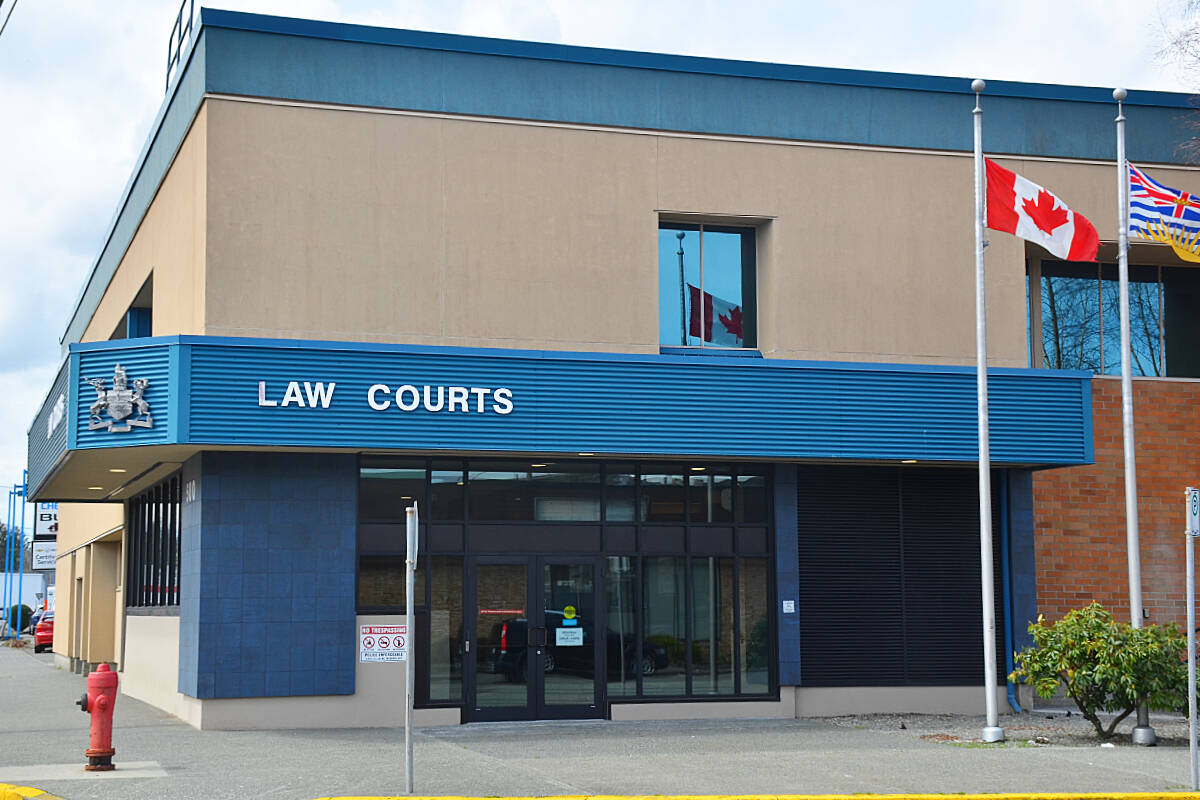The B.C. Supreme Court has overturned the convictions of a Campbell River woman accused during the early days of the COVID-19 pandemic of deliberately coughing on grocery store employees, shouting and disturbing store workers and customers and ramming one of the employees with a grocery cart.
Kimberly Woolman was convicted of two counts of assault and causing a disturbance April 13, 2023 for an incident in the Campbell River Save-on Foods on April 24, 2020. Woolman appealled the conviction on myriad grounds, Supreme Court Justice Douglas Thompson says in his Feb. 8 written Reasons for Judgement, “many of which were manifestly without merit.”
But Justice Thompson did allow the appeal on the point that the trial judge, Judge Barbara Flewelling, erred when she refused to allow the appellant (Woolman) to call character evidence.
READ MORE: Woman guilty of assault for coughing at grocery store worker during anti-COVID rant
Justice Thompson, who heard the appeal on Jan. 11, says the facts of the incident were that Woolman was shopping at the Save-On Foods in Campbell River on April 24, 2020 and “was complaining with considerable persistence and vigour about the store’s enforcement of COVID safety protocols.
She was attended by various store employees. The trial judge found that in the course of events, she shouted and disturbed the store employee by intentionally coughing in their direction and assaulted another by intentionally pushing her shopping cart into him.”
Woolman, who represented herself through most of the trial, told the trial judge that she would be calling a character witness but the trial judge ruled she couldn’t.
“Crown counsel (who is not counsel on this appeal) submitted that character evidence would be irrelevant,” Justice Thompson says in his Reasons for Judgement. “The judge ruled against admissibility, holding that character evidence can be helpful in sentencing proceedings, but character evidence is not admissible on a trial proper whether led by the Crown or an accused. After this erroneous ruling, the Court heard evidence from the last two Crown witnesses. The accused elected not to call evidence. After hearing submissions and reserving judgment, the trial judge delivered her reasons for convicting the appellant on all three counts on the Information.”
Justice Thompson allowed the appeal and quashed the conviction on the basis of two points regarding the erroneous ruling: whether it was so harmless or minor that it would have no impact on the verdict or that the error was “serious and prejudicial” but would have had no impact on the verdict because the case against the accused was overwhelming.
Justice Thompson ruled that he was not satisfied the character evidence ruling was harmless and doesn’t characterize the case against Woolman as overwhelming. Justice Thompson says that the character evidence goes beyond the Crown’s contention that it focuses simply on identity.
The Supreme Court Justice also ruled that the Crown’s case was not overwhelming on any of the three charges. For example, he says that characterization of the shouting in the causing a disturbance charge was not a foregone conclusion nor whether the force applied in the the actions resulting in the assault charges was intentional or not.
The final issue for the justice was whether verdicts of acquittal ought to be entered or a new trial ordered. A new trial would usually be ordered in a case like this because there is reasonable possibility of convictions on a retrial, Justice Thompson says. But the judge has discretion in the event that a “fit sentence” has been served before a successful appeal.
In Woolman’s case, the trial judge imposed an 18-month probation order and the appellant has completed about a third of that sentence, consequently, he directed that verdicts of acquittal be entered.
READ MORE: 18 months probation for coughing on frontline worker; COVID-19 tirade

